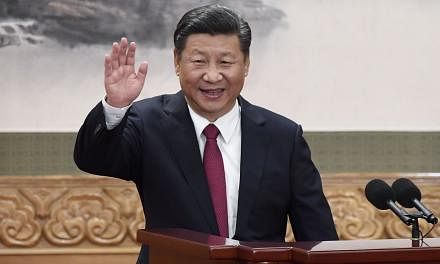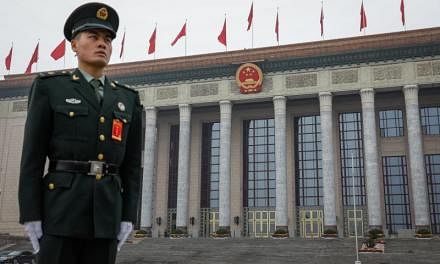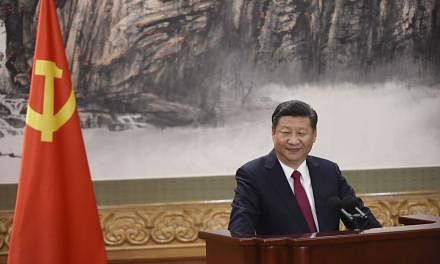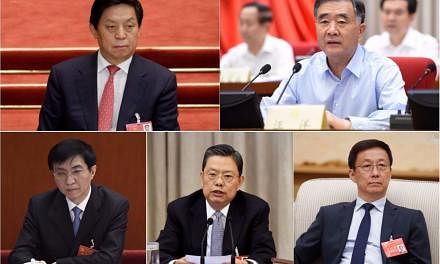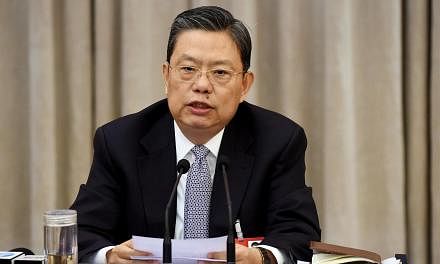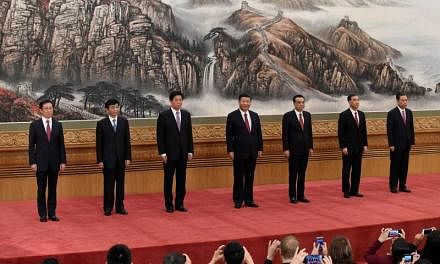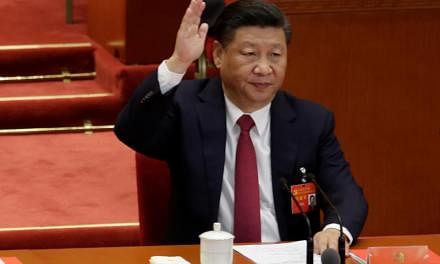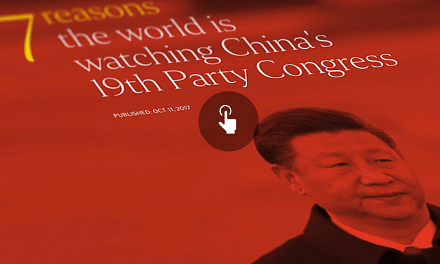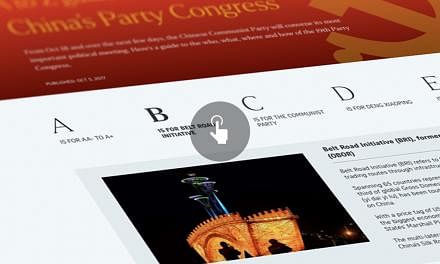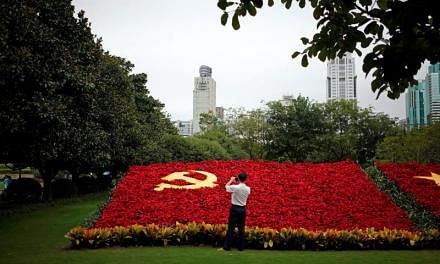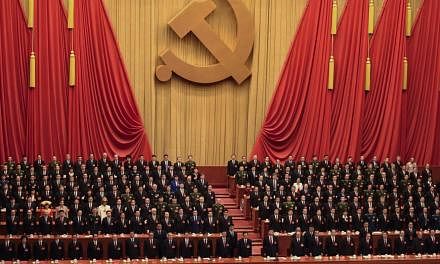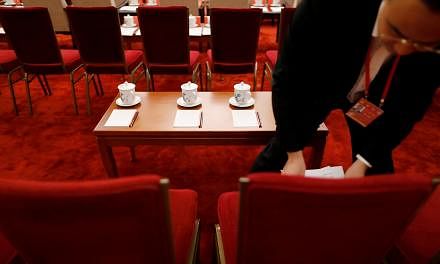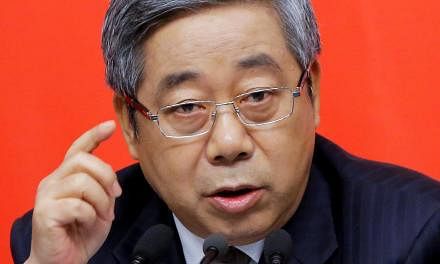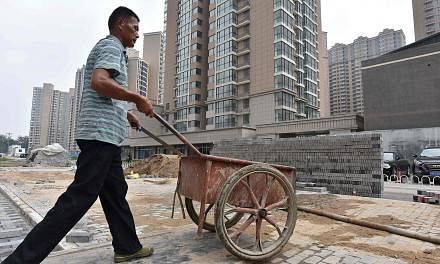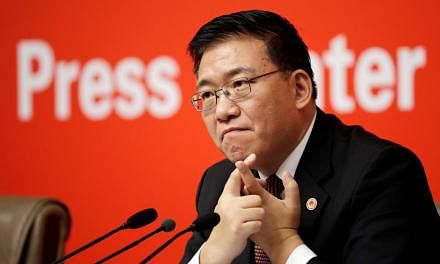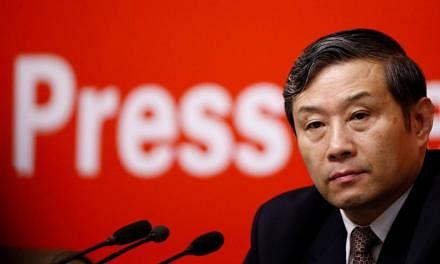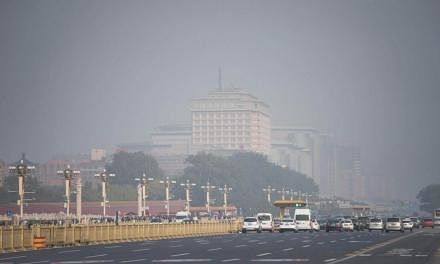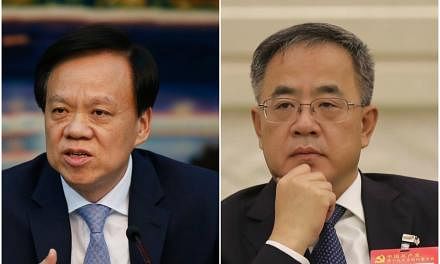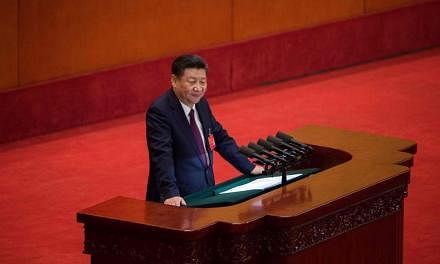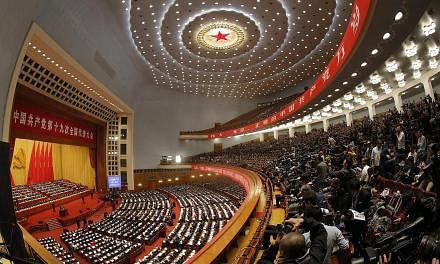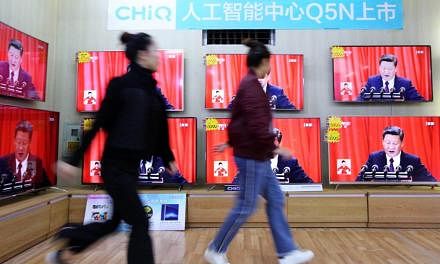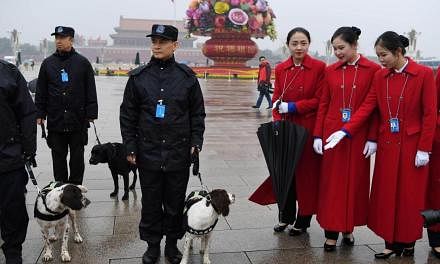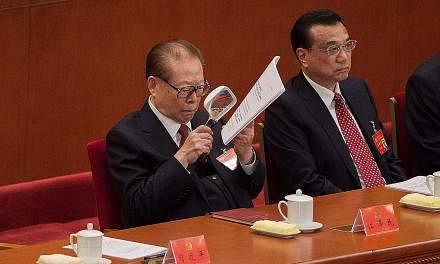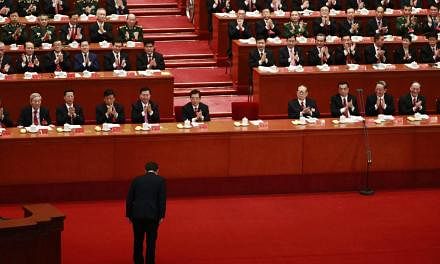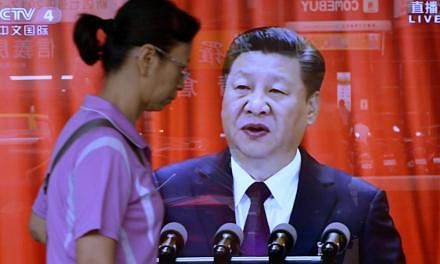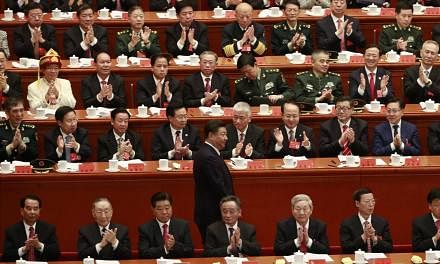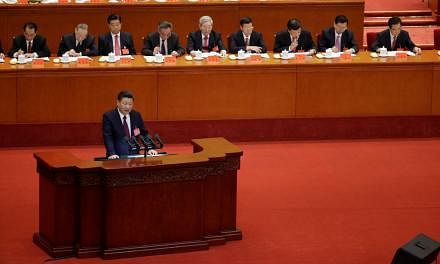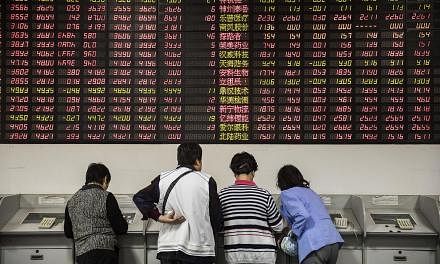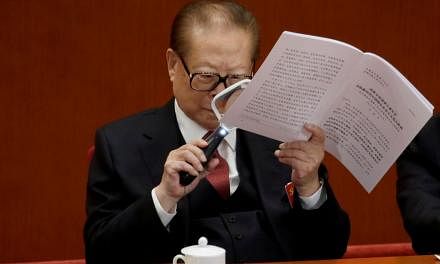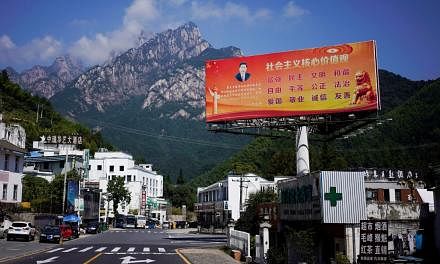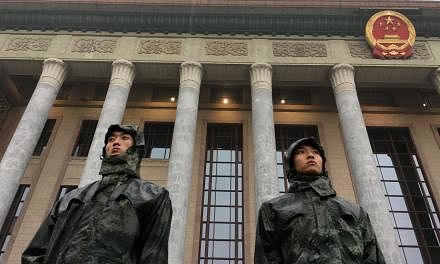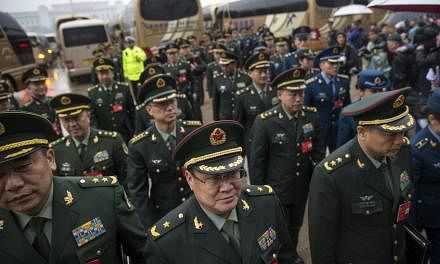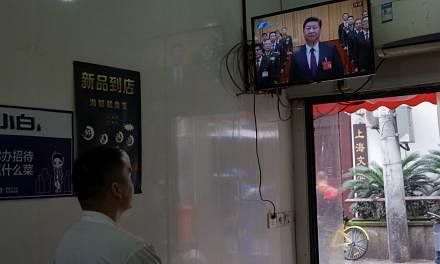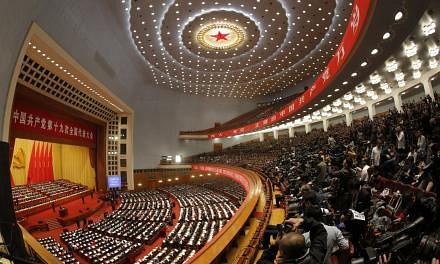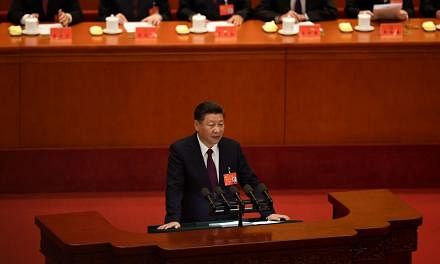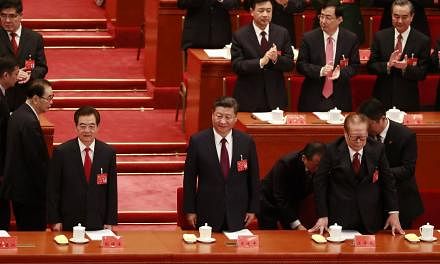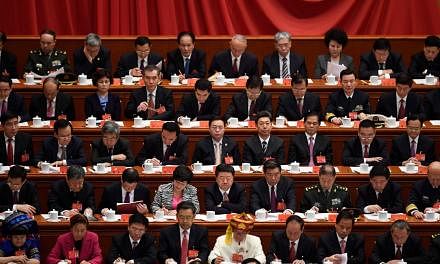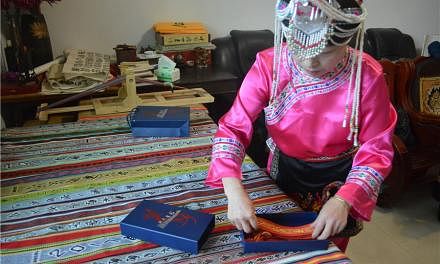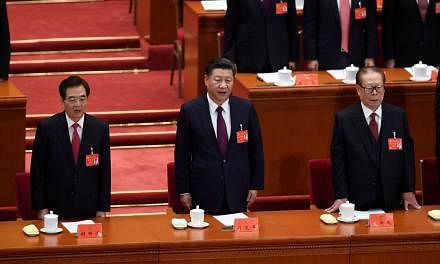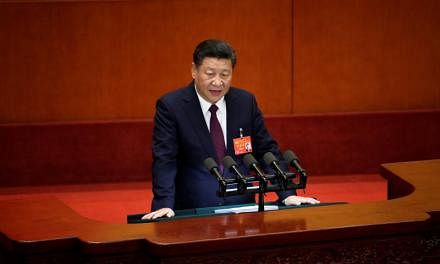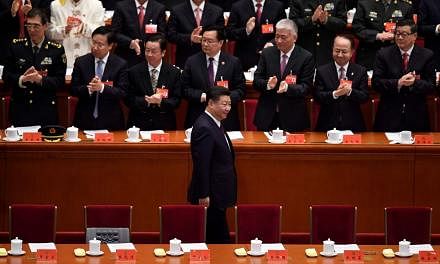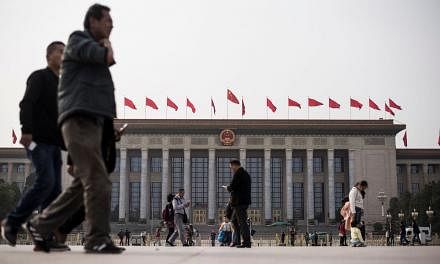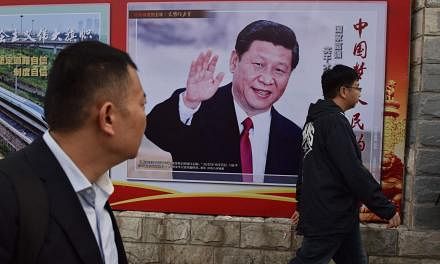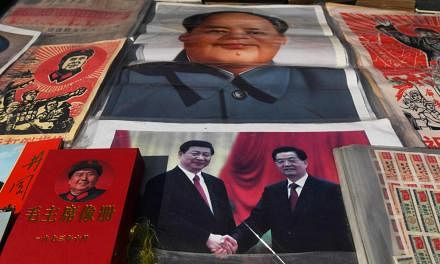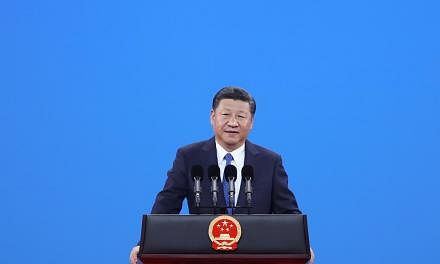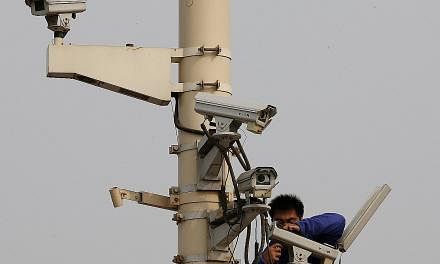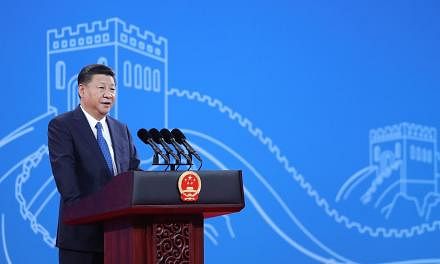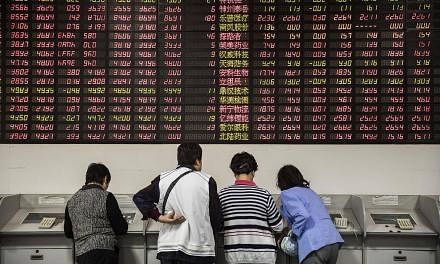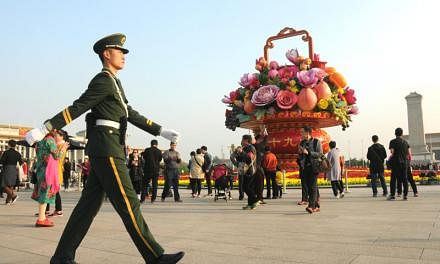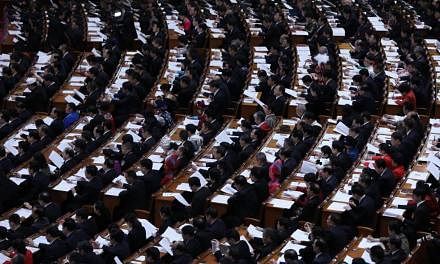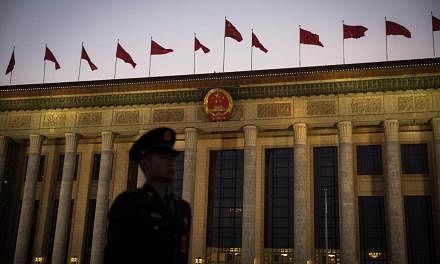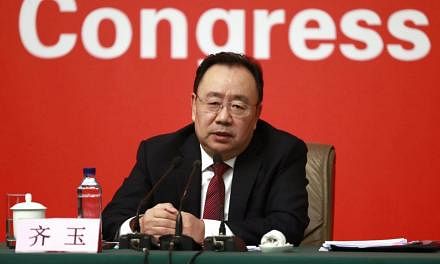BEIJING - The Chinese Communist Party (CCP) has defended itself against criticism that its anti-corruption campaign has led to inaction among civil servants and party officials afraid to get into trouble.
It said that these cases are few and that measures are being taken to prevent such inertia.
"There is such a phenomenon (of do-nothing officials) but this involves only very few officials and only some individual cases in certain localities," said Mr Qi Yu.
Mr Qi, vice-minister of the CCP's Organisation Department, which handles the party's personnel matters, was speaking at a press conference on Thursday (Oct 19) on the sidelines of the ongoing 19th national congress of the party.
He was responding to a question on the problem of government and party officials going passive or quitting to join the private sector as a result of the far-reaching anti-graft campaign that President Xi Jinping launched after he took the helm of the party in 2012.
Observers warn that China's economic growth has stalled as a result of the campaign, which causes local government officials, usually drivers of economic improvisation and adaptation to changing conditions, to turn passive.
This is because political innovations may involve taking unpopular decisions or engaging in business, which could be politically risky as it may lead to charges of corruption.
The anti-corruption drive has forced local officials to become risk averse and unwilling to attempt policy innovations on the ground, noted Assistant Professor Ang Yuen Yuen of Michigan University, writing in The Conversation website.
"But China's speedy growth in the past decades was precisely fuelled by the bold initiatives and discretionary actions of local leaders," she wrote.
Mr Qi said on Thursday steps were being taken to address the issue of officials' inaction. These included distinguishing between unwitting mistakes and intentional misconduct; between errors committed during exploration and ignoring rules and discipline; and between misconduct for public purposes and seeking selfish gains.
Other measures included positive incentives such as taking care of civil servants in their "work and daily life", appointing officials who have a greater sense of responsibility and are hardworking and training to help them adapt to the "new requirements of enforcing full and strict party self-governance".
Mr Qi acknowledged that "indolence of officials was and is a problem and can hardly be avoided in the future".
However, he said the number of cases has declined since the CCP strengthened party governance.
Agreeing with him was Mr Yang Xiaodu, deputy secretary of the Central Commission for Discipline Inspection, the party's anti-graft watchdog.
"The anti-corruption campaign will help those good officials to do an even better job and those inadequate officials to improve their work," he said at the same presser.
He noted that in the past five years, the CCDI had filed 1.545 million cases of corruption, punished 1.537 million party members and transferred 58,000 suspects to judicial bodies for prosecution.
In the years to come, the fight against corruption will continue, Mr Yang said, adding that there would be "no no-go zones, no ground left unturned and no tolerance shown".


